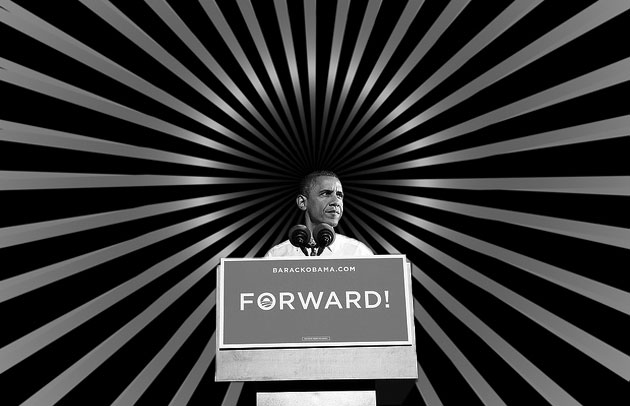
Georgia trees will die to ensure motorists see billboard like these.Courtesy John S. Myers
Georgia is a strange place. As Mother Jones‘ Tim Murphy has explained, the next senator from the state is likely to be nuts. The state GOP leadership not long ago met to discuss a secret, Obama-mind-control plot. And the state regularly makes headlines for taking extreme measures to oppose any sane government efforts to do anything, well, sane. Various cities, for instance, have attempted to mandate gun ownership by residents, just to spite the gun-control activists looking to tamp down mass shootings. Now, the state is making news for its opposition to trees.
Essentially thumbing its nose at residents who might like to make the air cleaner, combat global warming, or just have a prettier state, the Georgia legislature enacted a law in 2011 that banned trees within 500 feet of a billboard. In Georgia, home to 16,000 billboards, that could could be just about anywhere. The law, upheld this May by the Georgia Supreme Court, actually allows billboard companies to clear-cut offending trees, including those on public property, that might blot out a “Have you been injured in an accident?” or “Vote Republican” message. Billboard companies can also prevent new trees from being planted that might obstruct motorists’ views of their ads.
Although tree activists in the state had opposed the law, it has remained under the radar until recently, when sustainable development groups in Atlanta discovered that the law could eviscerate local plans, long underway, to make the city more pedestrian friendly. Atlanta has some of the worst traffic in the country and isn’t especially well known for its walkability ratings or scenic boulevards. But a few years ago, Livable Buckhead, an Atlanta neighborhood sustainable development group, spearheaded new zoning regulations that would change all of that. The group spent the last couple of years developing landscaping plans and streetscaping measures to go along with some new development that includes biking and walking trails, conservation, and greenspace with lots of pretty, leafy trees.
Now, though, those plans and the zoning regulations that went with them are in jeopardy thanks to the billboard lobby, which, according to the Atlanta Journal-Constitution, spent about $200,000 persuading Georgia lawmakers to give it power over city streetscapes. The billboard companies will have veto power of those local projects, and trees that have already been planted may have to be cut down to placate the billboard owners and all of those crazy Georgians who want to make sure no driver misses their signs comparing Obama to Hitler, fall foliage be damned.
On Monday, the Atlanta city council passed a resolution protesting the elevation of billboards over trees on public space, but it’s unclear if it will have any binding impact. Denise Starling, the executive director of Livable Buckhead who helped shepherd through the legislative changes to increase the city’s tree canopy told BuckheadView, “The community has worked hard and spent a lot of money over the years to develop the zoning standards and projects that create a walkable, pedestrian friendly environment—of which trees are a vital component. I personally find it shocking to have to seek permission from billboard owners to adhere to adopted zoning codes…I am confident the billboard owners will see that the value of those boards is highly dependent upon the value of the land in the community–which we are enhancing—and work with us to get a workable solution.”
















